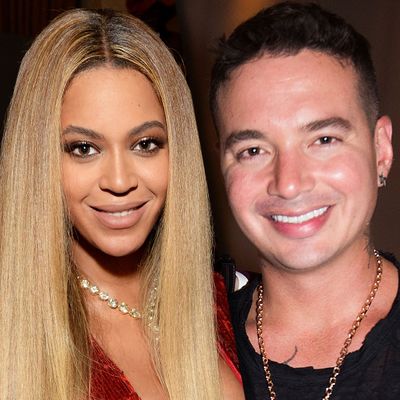
Musicians and their fans routinely speak of music as a universal language, and they’re not entirely wrong. Melodies and rhythms really do float over the barriers of spoken language that separate the human race. Like the air through which it moves, music can feel like a natural resource too abundant to be contained. People can’t live without it, and wherever you go, it’s already there.
That being said, people are more dependent on verbal language than they think. Tunes are feelings, but more often than not, it’s the words attached to them that give those emotions form and direction. Music and language are communal activities, and to not speak a song’s language is to be excluded, in some measure, from the people it represents. The more powerful and numerous the speakers of a language, the more likely a song in that language is to succeed, particularly when the music business is involved. English-speaking pop artists routinely top charts in non-English-speaking countries; meanwhile the U.S. Billboard Hot 100 contains only four non-English songs. Music may be universal, but its universe is unevenly structured.
It takes superhuman magnetism and songcraft for a non-English song to rise anywhere near the upper reaches of the American charts: Korean artist PSY’s “Gangnam Style,” with its absurdly catchy synth riff, dance, and music video, charted at No. 2, but most recently it’s “Despacito,” the cool-and-hot romantic ballad from Puerto Rican artists Luis Fonsi and Daddy Yankee that’s made a tremendous impact, holding the top spot for a record-matching 16 weeks. Yet even with such a colossal success, coverage of “Despacito” has been spotty compared to an English-language song of comparable prominence. Again, the language barrier is the problem: Since so many American music journalists speak English but don’t speak Spanish, they’re less qualified and less eager to comment on “Despacito” and its significance for its home-language audience. “Despacito” was huge, but for most Americans, that didn’t make it any easier to understand. The histories of Puerto Rico, reggaeton, and indeed the entire Spanish-speaking world remained opaque and unreal to them, an ignorance underlined by the bafflement and indifference regarding Puerto Rico following its ruin by Hurricane Irma.
For the past few years, the reggaeton star J. Balvin’s fame has been steadily rising in the Americas, Latin America in particular: the Colombian singer has carved out a reputation as a crossover artist, working with U.S. hitmakers behind the scenes, showing up on remixes with U.S. artists, and even inviting Pharrell to write and record with him in Spanish. Though Balvin’s been topping charts in Colombia, Mexico, and Spain of years, he’s hardly a household name in the States. But that’s starting to change: “Mi Gente,” his collaboration with Mauritanian-French producer Willy William, has cracked the top 20 in the past two weeks, and its stock is sure to rise with last night’s surprise release of a remix featuring Beyoncé delivering lyrics in Spanish and English. In much the same way Justin Bieber’s appearance on the “Despacito” remix helped lift the song to No. 1, Beyoncé’s presence is sure to boost the performance of “Mi Gente” (“My People”). And, as the Beyhive surges to support its queen, both Balvin and Willy’s visibility will rise. It’s a win-win situation for all, Puerto Rico very much included: The remix’s profits will go toward purchasing much-needed relief for the devastated island and its inhabitants.
Though most Americans remain ignorant of Puerto Rico’s plight, it’s clear that Beyoncé isn’t one of them. Language and culture barriers are incredibly high, but it’s good to recall that they’re not insurmountable. People aren’t restricted to one language unless they choose to be; neither learning Spanish nor learning about Hispanophone society and history are impossible. It’s a heartening sign to see how musicians can still help heal the divisions and damage imposed by rising seas and chauvinism. If music ever does become a universal language, acts like the “Mi Gente” remix are how it begins. Melodies and rhythms are wonderful, but only once a phrase like “my people” means the same thing to a global audience can music truly be said to be for all.

